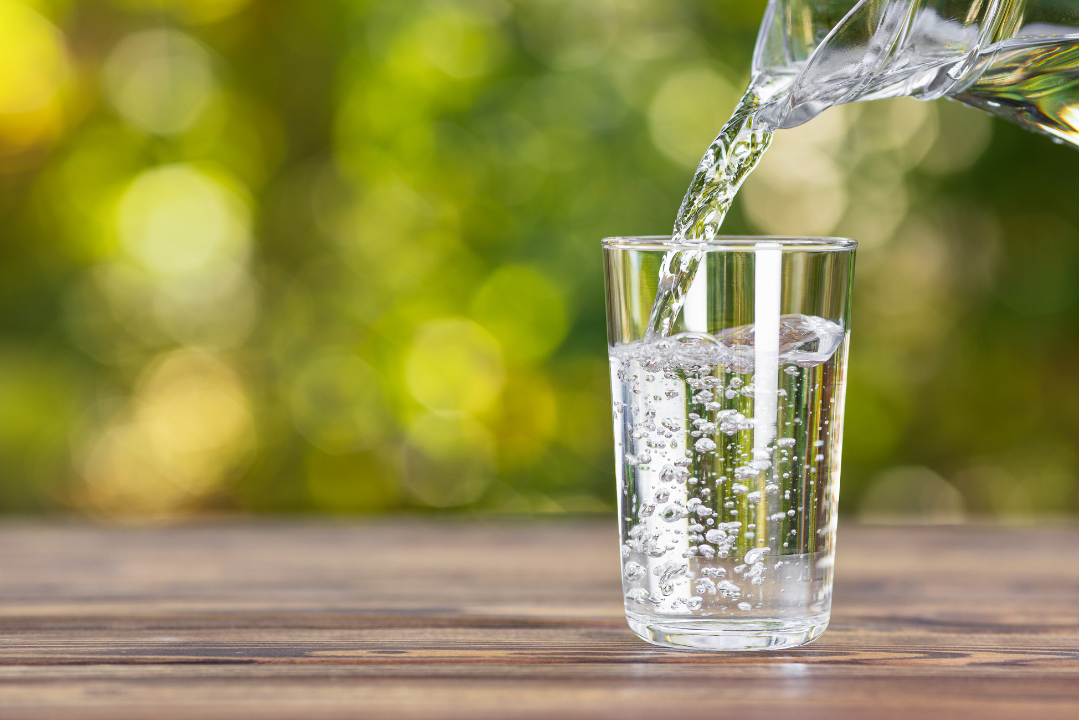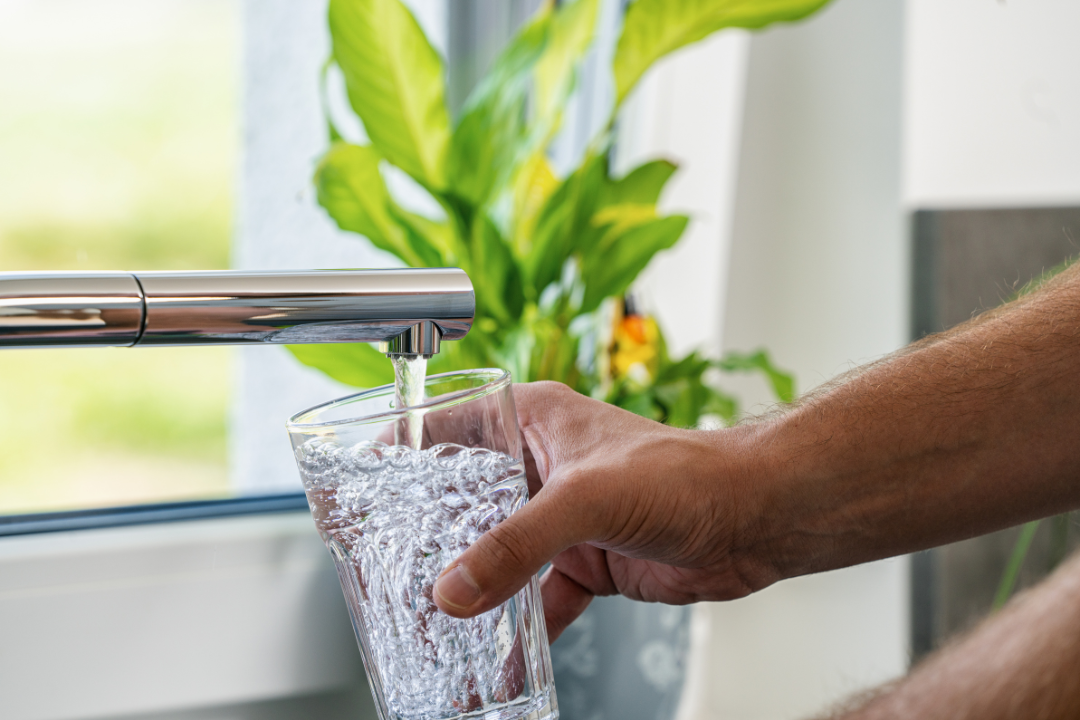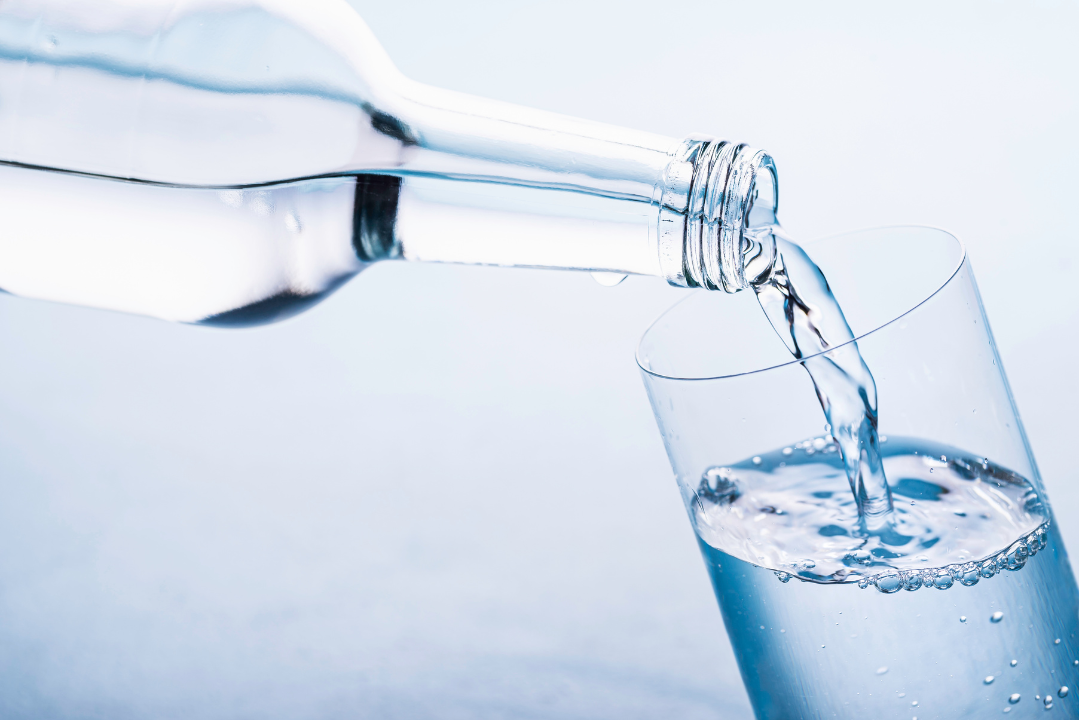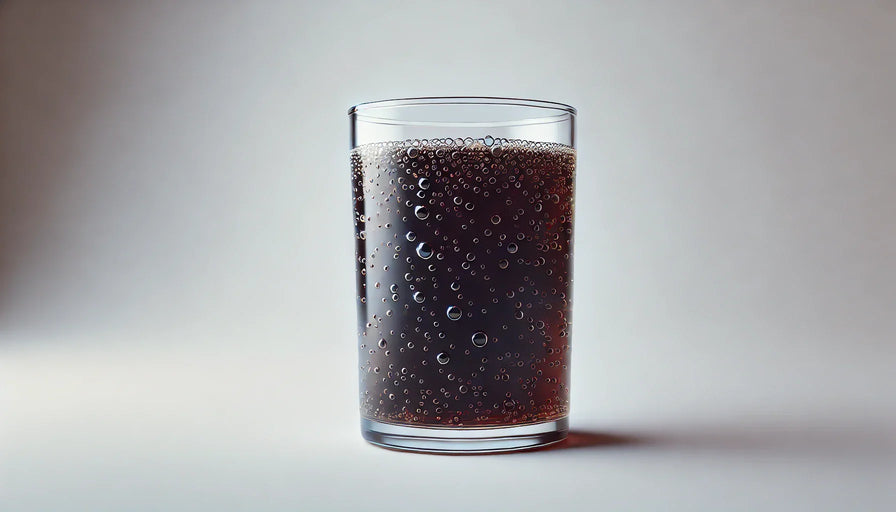
Mineral Water vs Tap Water: What's the Difference?

What's the difference between mineral water vs tap water?
The difference between mineral water vs tap water is quite significant. Mineral water is naturally sourced from underground springs and contains various minerals, whereas tap water is treated and processed by local municipalities to remove impurities before it reaches homes.
When choosing between mineral water and tap water, many people ponder which is the better option for their health and lifestyle.
Like many beverages (even carbonated and still), both types of water are crucial for hydration, but they originate from different sources and undergo distinct treatment processes.
Let's delve into the differences between mineral water and tap water.
Table of contents
Does tap water have minerals?
Yes, tap water does contain minerals, although the specific types and amounts can vary widely depending on the source of the water and the treatment processes it undergoes.
Common minerals found in tap water include calcium, magnesium, and sodium. In some cases, municipalities may even add minerals to tap water, such as fluoride, which is often included to help prevent tooth decay.
However, the concentration and presence of these minerals are generally lower than those found in natural mineral water. It is important to refer to local water quality reports to understand the specific mineral content and composition of your tap water.

Key differences
Source
Mineral water is sourced from natural underground springs that are rich in minerals, which are naturally occurring. This is not to be confused with spring water though as mineral water and spring water also differ greatly.
On the other hand, tap water comes from surface sources like rivers and lakes or underground sources and is processed and treated by local municipalities to ensure it is safe for consumption.
Tap water is also considered to be aerated water as it's coming from the tap, where mineral water isn't commonly known for being aerated.
Mineral Content
Mineral water contains naturally occurring minerals like calcium, magnesium, and potassium. These minerals contribute to its taste and health benefits.
Tap water, while sometimes containing added minerals for health benefits, mainly focuses on removing harmful substances and may not have the same mineral content as mineral water.
Some minerals that can be found in tap water include but are not limited to:
- Calcium
- Magnesium
- Potassium
- Sodium
- Chloride
- Bicarbonate
- Sulfate
- Fluoride
Check out our blog on club soda vs mineral water for a deeper dive into the mineral content and their differences.
Related read: Where Does Mineral Water Come From?

Taste
The taste of mineral water can vary depending on its source and the minerals it contains but it should be noted that mineral water typically has a taste meaning it doesn't taste like still water or spring water with a neutral pallet.
Mineral water can also be naturally carbonated which can add a fizzy mouthfeel that many find appealing further impacting the taste.
Tap water can have a slightly different taste depending on the region it comes from, as well as any added chemicals used during the treatment process, but is usually comparable to bottled water or spring water. It may also contain a slight chlorine taste or odor if not properly filtered but this is not common.
Safety
Mineral water is typically safe to drink; however, it’s crucial to read the label for added minerals or substances that could cause allergies or health issues. Similarly, tap water undergoes rigorous testing and treatment by local municipalities to ensure its safety.
Nonetheless, occasional contamination incidents underline the importance of regular testing and monitoring.
Regulation
Mineral water is often regulated by specific standards that ensure its mineral content and source integrity remain constant.
Tap water is regulated by local, state, and federal agencies to ensure it meets safety and health standards, including the removal of pollutants and pathogens.
Cost
Typically, mineral water is more expensive than tap water due to the sourcing, bottling, and transportation processes involved.
Tap water is usually low-cost, readily available, and included in most household utility expenses.
Related read: What is Alkaline Water?

Is tap water safe to drink?
Yes, in many parts of the world, tap water is generally safe to drink. Local municipalities subject tap water to rigorous treatment and testing to meet safety standards set by regulatory agencies such as the Environmental Protection Agency (EPA) in the United States.
These treatments typically involve filtration, chemical disinfection, and regular monitoring to remove harmful bacteria, viruses, and contaminants.
However, the safety of tap water can vary depending on the quality of the local water infrastructure and potential contamination sources.
Staying informed about local water quality reports is advisable, and using a home filtration system can provide added peace of mind.
Cities in the USA with concerns about tap water quality
- Flint, Michigan
- Houston, Texas
- Newark, New Jersey
- Philadelphia, Pennsylvania
- Detroit, Michigan
These cities were pulled from an analysis by the Natural Resources Defense Council (NRDC).
Tap water vs bottled water
When weighing the options, it's crucial to consider whether tap water is better than bottled water based on various factors like quality, cost, and environmental impact.
Tap water, as previously mentioned, is treated and regulated by local municipalities to ensure its safety for consumption. It is low-cost and readily available, reducing household expenses compared to buying bottled water consistently.
Bottled water, on the other hand, often claims to be of higher quality, boasting purified processes or origins from pristine springs. However, this doesn't always mean it's superior to tap water.
In fact, many bottled water brands simply use treated tap water. When it comes to environmental impact, bottled water poses significant concerns due to the plastic waste generated by single-use bottles. These bottles contribute to pollution and environmental degradation if not properly recycled.
You can learn more on the origin of bottled water and its effect on growing popularity concerns here!
The minerals in tap water compared to bottled water tend to differ significantly.
Tap water often contains essential minerals such as calcium and magnesium, which are beneficial for bone health, whereas bottled water may not have these minerals due to the purification process.
For those with access to well-maintained municipal water systems, tap water provides a cost-effective and environmentally friendly option. However, in areas with questionable water quality or for individuals who prefer the convenience of bottled water, the latter may be more appealing.
Always consider local water quality reports and opt for sustainable practices to make an informed choice.
Related read: What's the Difference Between Tonic Water vs Mineral Water?

Summary
In conclusion, tap water and mineral water both offer distinct benefits and drawbacks. While mineral water boasts a variety of minerals and unique taste profiles, it is often more expensive.
Tap water, regulated by local municipalities, is generally safe, cost-effective, and environmentally friendly. Consider local water quality and personal preferences when making your choice.
Recommended reading

How to Give Back During Thanksgiving 2025
Key takeaways Thanksgiving is a time to express gratitude and share with those in need. From volunteering at local shelters to donating food and essentials, there are numerous ways to give back to...

What Does Carbonation Do to Your Body?
What does carbonation do to your body? Carbonation alone typically has minimal effects; however, it can cause bloating and discomfort for some, and it may worsen acid reflux due to carbon dioxide ...

What Are the Health Benefits of Sparkling Water?
Summary Sparkling water isn't just a refreshing drink—it comes with surprising health benefits too. From aiding digestion to improving hydration, discover how sparkling water can be a healthy addi...